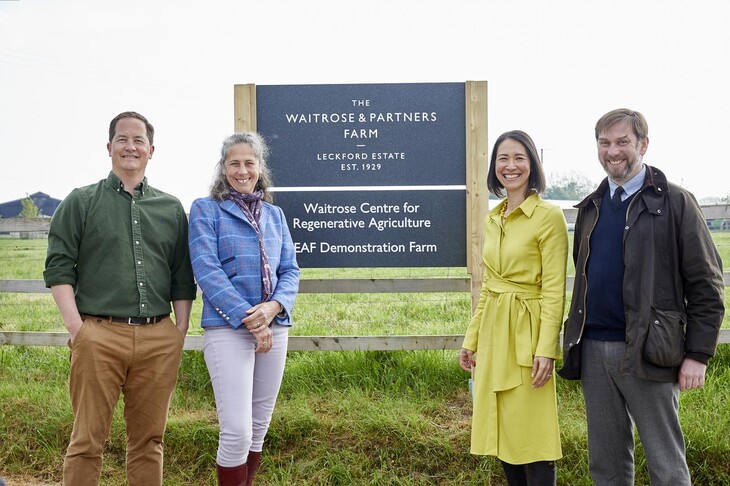
Waitrose has announced a new push toward regenerative agriculture to help the 'financial resilience' of farms and to combat climate change.
The retailer said it would support more than 2,000 of its farmer suppliers to move to nature-friendly farming practices.
It plans to source British meat, milk, eggs, fruit and vegetables from farms that use regenerative practices by 2035.
As part of the push, farmers will have access finance and resources to support their transition to regenerative and low carbon farming.
A market will be provided for regeneratively produced food in Waitrose shops and online, the supermarket said.
A permanent 'Centre of Excellence' will be made at Waitrose's Leckford Estate, in Hampshire, providing tools, workshops, online resources and mentoring to help farmers.
Waitrose said that a group of farmers will also develop understanding of regenerative practices across different supply chains, tailored to farming types and then scale these into supply chains.
And the retailer confirmed that it will complete a ‘state of nature’ assessment by 2026 of all of its own brand UK farms.
The plans were announced at Waitrose's farm on the Leckford Estate, where farmers have been farming regeneratively since 2020.
Its executive director, James Bailey committed the supermarket to "play its part revolutionising the British food system".
He said: “We want customers to know that when they shop with us, they are voting with their purses and wallets for a food system that works in harmony with the natural world, and that supports a financially sustainable future for British farmers.
“We have a duty to help our farmers make the move towards more nature-friendly growing, and we’re committed to playing our part in the revolution that our country’s food system requires.”
